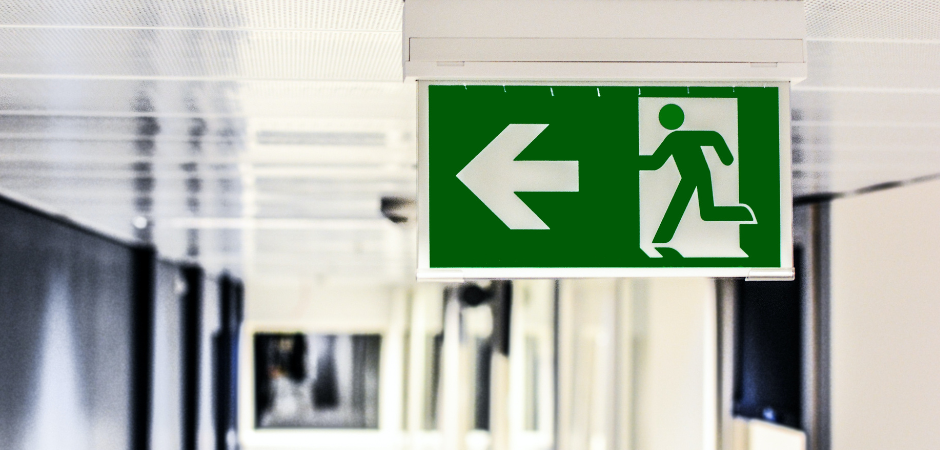Fire safety for the elderly

Fire safety is a critical concern for people of all ages, but it becomes especially important when considering the needs and vulnerabilities of elderly relatives. Ageing loved ones may face physical limitations, memory issues, or mobility challenges that can increase their risk in a fire emergency. As caregivers, family members, or friends, it’s our responsibility to ensure their safety. In this comprehensive guide, we will explore essential fire safety tips tailored to the elderly population. By following these guidelines, we can minimise the risk of fire-related accidents and provide our elderly relatives with a safer living environment.
The importance of fire safety for the elderly
Before delving into the specific safety tips, it’s crucial to understand why fire safety is particularly significant for the elderly. Aging often brings about physical and cognitive changes that can impact an individual’s ability to react swiftly in an emergency. Here are some key reasons why fire safety should be a top priority when caring for elderly relatives:
1. Decreased Mobility: Many elderly individuals experience reduced mobility due to conditions such as arthritis or muscle weakness. This limited mobility can make it challenging to escape quickly in the event of a fire.
2. Cognitive Decline: Conditions like dementia or Alzheimer’s disease can affect memory and decision-making abilities. Elderly relatives may struggle to remember fire safety procedures or how to respond during an emergency.
3. Sensory Changes: Aging can lead to issues with hearing and vision. An elderly person may not hear a smoke alarm or see an exit sign as clearly.
4. Medications: Seniors often take multiple medications, some of which may cause drowsiness or confusion. This can affect their ability to react effectively in a fire emergency.
5. Increased Vulnerability: The elderly are more susceptible to injuries, such as burns or smoke inhalation, during a fire. Their recovery from these injuries can be more challenging.
With these factors in mind, we can now explore essential fire safety tips to protect our elderly relatives:
Fire prevention tips
- Smoke Alarms: Ensure that smoke alarms are installed on every level of the home and inside each bedroom. Test alarms monthly and replace batteries at least once a year.
- Carbon Monoxide Detectors: Install carbon monoxide detectors in areas with gas appliances. Carbon monoxide is odourless and deadly, so early detection is crucial.
- Fire Extinguishers: Keep fire extinguishers accessible and make sure your elderly relative knows how to use them. Regularly inspect extinguishers for proper functionality.
- Cooking Safety: Encourage safe cooking practices, such as using a timer and not leaving the stove or oven unattended. Consider installing an automatic stove shut-off device.
- Smoking Safety: If your loved one smokes, ensure they do so safely. Provide fireproof containers for ashtrays and consider alternatives like electronic cigarettes if possible.
- Electrical Safety: Regularly check electrical cords and outlets for signs of wear or damage. Avoid overloading outlets and using frayed cords.
- Candle Safety: Consider discouraging the use of candles. If they are used, ensure they are placed in sturdy, non-flammable holders and never left unattended.
Emergency preparation
- Emergency Plan: Create a detailed escape plan with your elderly relative. Identify multiple escape routes from each room, and practice the plan regularly.
- Emergency Contacts: Keep an updated list of emergency contacts, including family members, neighbours, and medical professionals. Ensure your loved one knows how to contact them.
- Mobility Aids: If your relative uses mobility aids like a walker or wheelchair, ensure they are easily accessible and that your escape plan accommodates these aids.
- Emergency Kit: Assemble an emergency kit containing essential items like medications, identification, important documents, a flashlight, and spare batteries.
Home safety modifications
- Clear Pathways: Keep hallways and exits free from clutter to ensure unobstructed escape routes. Remove any loose rugs or obstacles.
- Bedroom Safety: Place a phone, flashlight, and keys within easy reach of the bed. Consider installing a bedrail for stability.
- Door Locks: Use easy-to-operate door locks that do not require fine motor skills. In some cases, a keyless lock or an accessible key holder may be beneficial.
- Accessible Exits: Ensure all exits are accessible, and consider installing exit ramps or stairlifts if necessary.
Education and communication
- Fire Safety Education: Talk to your elderly relative about the importance of fire safety and regularly review fire safety procedures.
- Practise Run: Practice fire drills, including crawling low under smoke if necessary. Role-playing can help familiarise your loved one with emergency procedures.
- Communication: Encourage open communication about any concerns or difficulties your relative may have with fire safety measures.
- Regular Check-Ins: Maintain regular contact with your elderly relative or arrange for neighbours or caregivers to check in regularly. Promptly address any safety concerns.
Fire safety is a shared responsibility that requires careful planning, education, and vigilance. When it comes to our elderly relatives, it’s crucial to tailor fire safety measures to their unique needs and circumstances. By following these fire prevention tips, preparing for emergencies and making necessary home modifications, we can help protect our elderly loved ones and provide them with a safe and secure living environment.
